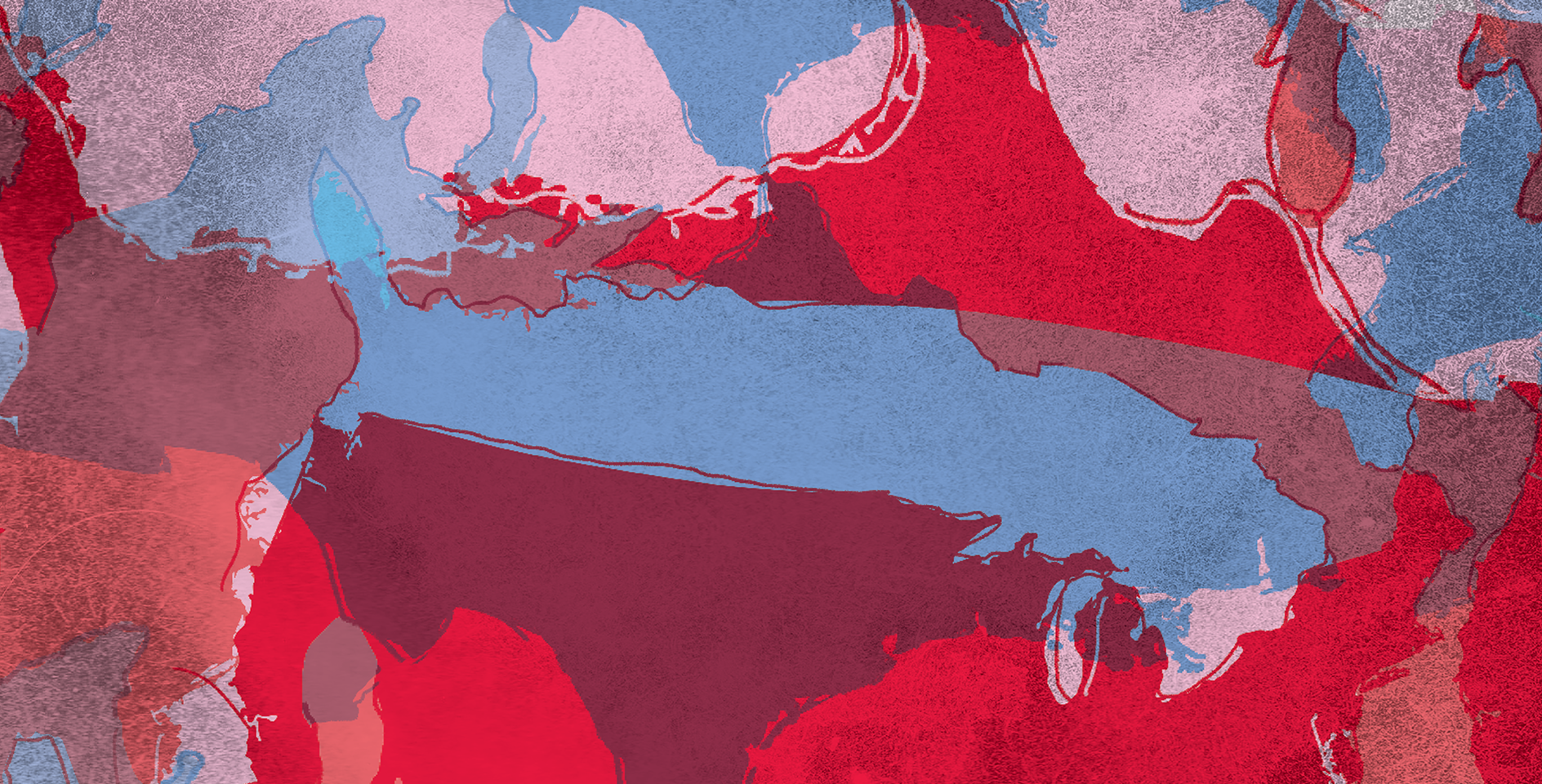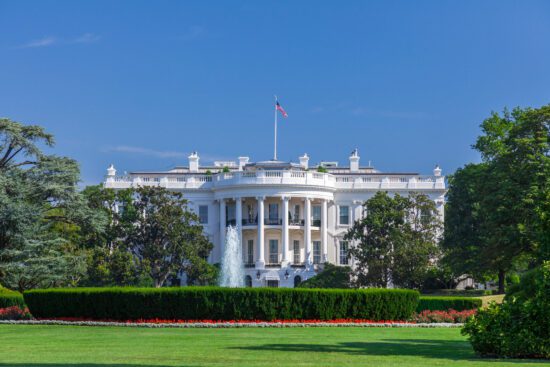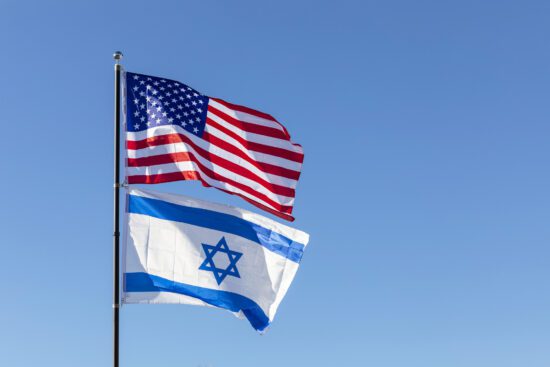Jeff Pickering from the ERLC’s policy staff recently invited two former White House staffers, Josh Deckard and Michael Wear, to the Leland House for a conversation about civility and working in politics in Washington, D.C.
Jeff Pickering: Where are you from? And when did you move to Washington, D.C.?
Josh Deckard: I’m from Cincinnati, Ohio, born and raised, and I moved to Washington when I was 20 for my first job that was actually in the White House with President George W. Bush.
Michael Wear: I’m from Buffalo, New York, a proud Buffalonian. I came to D.C. when I was 18 for college at George Washington University and just never left. My first paid job was with President Obama’s first inaugural. I helped oversee the National Prayer Service held the day after the inauguration at the Washington National Cathedral.
JP: Both of your first jobs were in the White House, that’s a remarkable story to share.
MW: There are things I know now that would have helped me on the job, but the upside of it was that I was just happy to be there. For a lot of folks, getting to the White House is the result of a career of plotting and strategizing. I just wanted to make the most of every day because I knew it wasn’t going to last. Working in the White House you always know there is an end date.
JD: That’s right, I completely agree. One of the things I am thankful for is that when I started I was surrounded by humble people, specifically Chief of Staff Andy Card and President Bush. I had a chief of staff who would go and tap a career employee on the shoulder and invite him to lunch. Career employees told me they had been working there for three decades and no chief of staff had ever even engaged with them. The president was sure that we knew that to whom much is given, much is required.
JP: Neither of the presidents you served had easy terms, there were arguments and debates both over the substance of policy and the controversy of politics. Is the conflict America sees on TV real in the lived experience of someone on the inside an administration?
MW: Unfortunately, I think increasingly so. Partisanship and conflict has seeped into the interpersonal relations of many in D.C., including elected officials in a significant way. There are relationships that defy this trend, like Barack Obama had with Tom Coburn, but things have coarsened. The ability to get news from sources that affirm your biases is actually affecting our politicians, too. Our politicians are more able to only hear from those who agree with them and to view elections as not about persuading the folks that they are seeking to represent but just churning out more folks that already support you. There is real conflict in D.C. that strikes down into the interpersonal.
JP: How do you define civility?
MW: Civility pertains to how we treat one another in public, which now the former head of Fuller Seminary calls it a kind of public politeness. I have referred to it as public grace. Civility is what grace looks like in public. To refer to Scripture, I think of Peter’s admonition that we would want to keep our tongues from evil, our lips from deceitful speech, and civility is how we recognize the dignity of other human beings through the words and the actions that we interact with them in public. It is a way that we communicate the dignity of other people, of strangers, in public.
JD: It boils down to the principle of the second most important commandment which is to love your neighbor as yourself. It boils down to love. It is also consider others better than yourself, look at to the interest of others before your own. Civility is from a motivation of love and service toward others.
JP: Is there a time that you saw that kind of civility in action in the White House?
JD: This is going to sound like nonsense: I don’t remember a day were I didn’t see it in action. President Bush had a mindset that we are going to treat everybody with respect, whether we disagree with them, whether they treat us poorly, whether they say things about us that aren’t true. We are going to treat them with love, with kindness, and with respect. In my departure letter from the White House, one of the things I wrote to him is that very few people in life are the same person in public as they are in private. Privately he is significantly more kind and compassionate and a thoughtful person than even transpires on TV.
MW: The president I served is someone who occupied the office, similar to what Josh said, with this incredible grace. It was an honor to work for him every day, and he set the tone. There were times when the impulse outside of the building would have been why aren’t you hitting back, why are holding yourself to a higher standard than others seem to, and the president would reel that back and remind folks of why we were there. I think of [the] speech he gave at the National Prayer Breakfast in 2010 where he laid out his vision of civility in public life. Another that sticks out is during the inauguration weekend, the president held a dinner in honor of John McCain whom he defeated for the presidency. In light of everything that has transpired since, I think it is even more meaningful as a show of public grace that people deserved dignity even when you disagree politically.
JP: Is there a time when you didn’t measure up to your own standard of civility?
JD: I sadly can think of too many times. I was a baby believer then and look back on that time with great fondness and some regret in how I treated certain people. I remember sitting on Air Force One flying down to Waco talking to the president, and I was very fired up about something and said “I hate,” in mentioning a specific group of people. And he corrected me. He said, “Josh, you don’t hate them, you can’t hate people, and we need to love people who are different than us, who think differently than us, even if they don’t deserve it.” Having the leader of the free world correct you graciously is quite something, but I was wrong. I was thinking about these people being wrong, but I was being self-righteous and arrogant and that was a wonderful lesson that I am super thankful for.
Civility is what grace looks like in public.
MW: I can think of meetings I was in, and often it was subtle, making the argument that, you know, isn’t completely honest or doesn’t completely respect the point of view of your opponent, but you know you could trip them up if you just position their view in this way and leave this fact out. Repeated occasions of those kinds of rhetorical maneuvers undermines the civic dialogue for everybody; it makes it so that our politics become a technique of maneuvering rather than public service and a mission of mutual inquiry into what is best for the public. I think we often talk about civility as just being nice when really civility is about the rules of the road that enable civic involvement for everybody.
JP: Is civility in politics a cover for being a moderate? Can you be a strong conservative or a true progressive and be civil?
MW: I just think that is terribly misguided. I think there are a lot of uncivil moderates. And there are a lot of civil people who have strong convictions. What’s necessary for civility is an essential amount of humility that suggests that I may believe in my political views a great deal but not so much that I believe that the ends justify the means. Incivility at its worst form is a kind of public hatred. From the Christian perspective, we believe politics are important, but it is not ultimate, and if we are sacrificing faithfulness through dishonoring the dignity of our fellow citizens and fellow human beings by resorting to uncivil tactics to achieve some kind of political end, that can sometimes reflect a form of idolatry.
JD: Yes, well said, especially his point that politics obviously are important but not ultimate is something we all need to keep in mind. I’m as conservative as it gets, and yet, as I mentioned earlier, some of my best friends are Democrats. The guy I had lunch with on Friday is as liberal as it gets. I doubt we agree on a single policy and yet, we were able to talk about his girlfriend, my wife, my children, our current jobs, other things going on in the world today. We were able to touch on policies that are being debated in the public square today, and he has his position and I have my position, but we were able to talk. He is not a Christian, but we were able to talk with mutual love and respect for one another.
JP: I want to look ahead because a lot of what we do at the ERLC is equipping Christians to think about how to apply kingdom theology to moral discipleship. Looking forward, how can Christians from opposing political parties model civility for the watching world?
JD: I think it is John 13, “love one another as I have loved you, so that all men will know that you are my disciples,” right? I used to think that to be a Christian meant you had to be part of a specific political party, and now I’m so thankful for the church I am in today. The zip code we meet in is actually the second most diverse zip code in the entire country; over 90 nationalities are represented. We have people who voted for a variety of candidates over the 10 years we have been a church. And yet, we come together because we love Christ. I think that it is fascinating to the outside world. I’m thankful for God’s wisdom in creating the local church to display his glory and his kingdom.
MW: That’s right. I’d just add, I think the frustration that some folks have with civility is that it is sometimes invoked only for the other side or used to deflect from substantive political disagreements. We have to realize that only invoking civility to put down the other side, whoever that may be, is one of the greatest threats to civility today. The norm of civility cannot withstand partisan or ideologically selective invocations. Civility is best invoked first as a matter of personal reflection, second to your own side, and then on your political opponents. Be willing to call out incivility, even if it works against your own short-term political interests. That’s not just going to help our politics; it is actually a witness to where your security and faith is. Our culture needs people who are willing to uphold principles even when it seems to work against their short-term political interest.
JP: I love that. Michael, Josh, thank you so much.
Josh Deckard is the founder of Hammerstone Capital, an investment company. From 2002-2007, he was the assistant press secretary to President George W. Bush.
Michael Wear is the chief strategist for The And Campaign, a Christian civic engagement organization. He worked in the White House faith-based initiative office during President Barack Obama’s first term.










